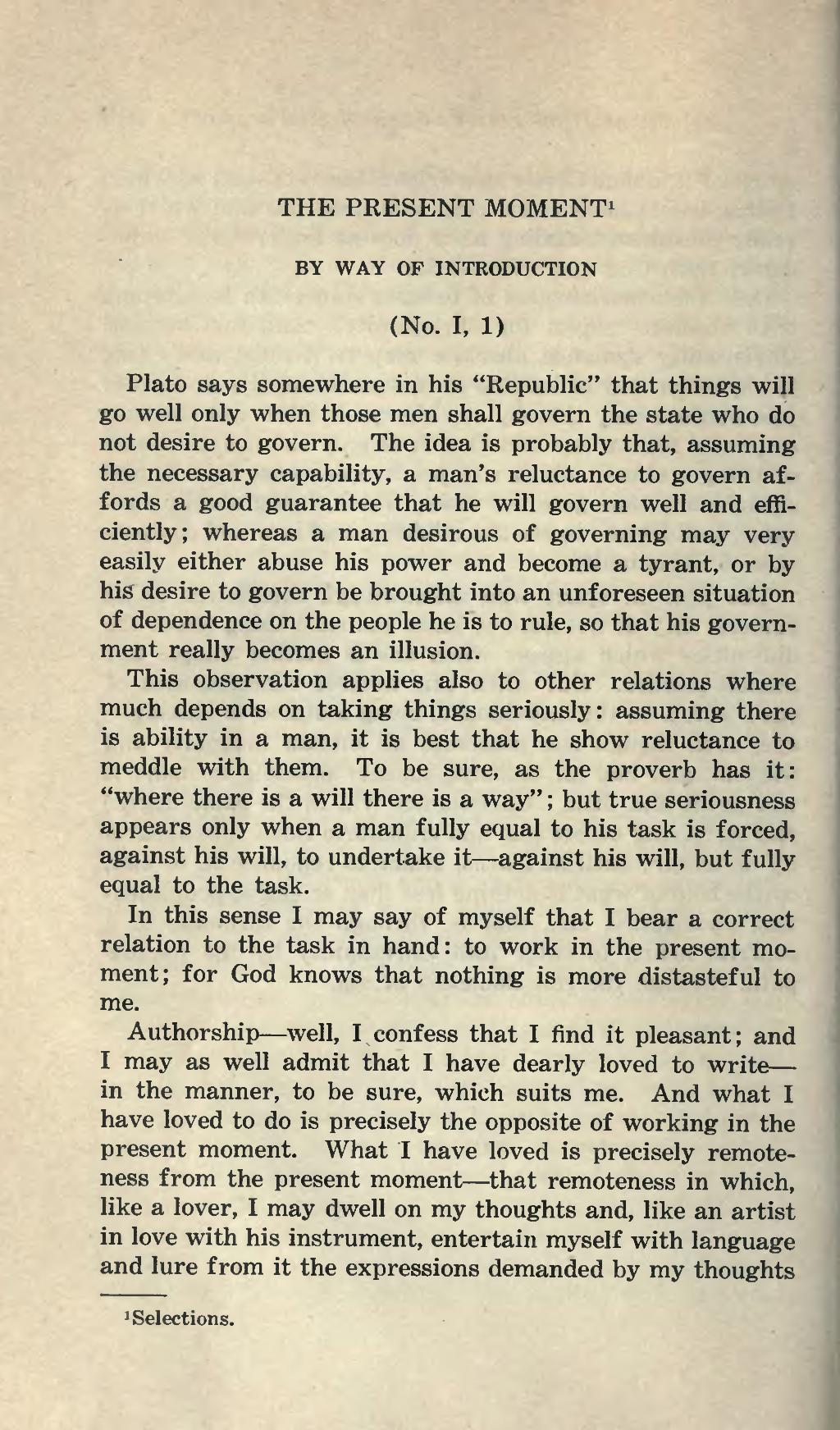THE PRESENT MOMENT[1]
BY WAY OF INTRODUCTION
(No. I, 1)
Plato says somewhere in his "Republic" that things will go well only when those men shall govern the state who do not desire to govern. The idea is probably that, assuming the necessary capability, a man's reluctance to govern affords a good guarantee that he will govern well and efficiently; whereas a man desirous of governing may very easily either abuse his power and become a tyrant, or by his desire to govern be brought into an unforeseen situation of dependence on the people he is to rule, so that his government really becomes an illusion.
This observation applies also to other relations where much depends on taking things seriously: assuming there is ability in a man, it is best that he show reluctance to meddle with them. To be sure, as the proverb has it: "where there is a will there is a way"; but true seriousness appears only when a man fully equal to his task is forced, against his will, to undertake it—against his will, but fully equal to the task.
In this sense I may say of myself that I bear a correct relation to the task in hand: to work in the present moment; for God knows that nothing is more distasteful to me.
Authorship—well, I confess that I find it pleasant; and I may as well admit that I have dearly loved to write— in the manner, to be sure, which suits me. And what I have loved to do is precisely the opposite of working in the present moment. What I have loved is precisely remoteness from the present moment—that remoteness in which, like a lover, I may dwell on my thoughts and, like an artist in love with his instrument, entertain myself with language and lure from it the expressions demanded by my thoughts
- ↑ Selections.
